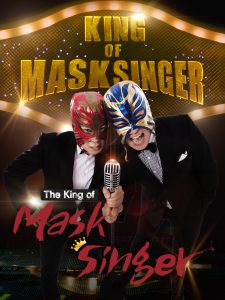Starved for Sports? Here Are 5 Options That Aren’t N.B.A. Classic
Starved for Sports? Here Are 5 Options That Aren’t N.B.A. Classic
On the menu: trenchant documentaries from ESPN and HBO, dramas about Norwegian soccer and Korean baseball, and an addictive exploration of pro wrestling.



By Mike Hale
How are you scratching your itch for televised sports? (If you don’t have one, move along. I don’t comprehend you.) With no live competition to show, broadcasters are offering a buffet of leftovers — “classic” games, old poker tournaments, spelling bee marathons — and constantly replenished chatter about what’s not happening.
There’s a better way to go. Listed here are some current or recently available shows — a pair of documentaries, a pair of dramas and a nonfiction series — that offer the thrill of victory and the agony of defeat without the stale taste of a reheated meal.
‘The Scheme’ and ‘Vick’
These recent documentaries sit at the intersection of athletics, race and true crime. Each focuses on an African-American sports figure who ran afoul of the law and, without trying to justify or excuse his actions, shows how neither crime nor punishment can be fully understood outside the context of race.
HBO’s “Scheme” hands the microphone to the college basketball scout and fixer Christian Dawkins, and lets him tell the story of the F.B.I. corruption sting in which he and a handful of sneaker executives and black assistant coaches took the fall. He’s good company. As Dawkins narrates the story with rough and self-deprecating humor, you understand both the charisma and business savvy that fueled his precocious success and the arrogance and naïveté that contributed to his downfall.
The film is tilted toward Dawkins in part because no one from the F.B.I. would be interviewed. You can see why. The director, Pat Kondelis, nimbly outlines the bureau’s creativity and persistence: how it reframed the unethical but not illegal practice of payments to high-school players as a criminal enterprise, and how it had to push hard to get Dawkins to do the incongruous things it would eventually arrest him for. Kondelis also uses F.B.I. wiretaps to indict, in absentia, several of the head coaches who were connected to the case, juxtaposing their passionate public denials of paying players with their coarse private boasts to Dawkins of how good they were at it.


ESPN’s three-and-a-half-hour “Vick,” part of its 30 for 30 documentary series, is a more expansive examination of how class and culture get tangled up in the mythmaking machinery of the sports business. Like Dawkins, Michael Vick, the dazzling quarterback whose football career was temporarily derailed in 2007 by his involvement in dog fighting, tells his own story. He’s quiet, thoughtful and, it would appear, remorseful, though viewers will make their own judgments informed by the emotions they bring to the case.
Ideas from The Times on what to read, cook, watch, play and listen to while staying safe At Home.



Stanley Nelson — also the director of “Miles Davis: Birth of the Cool,” shown on PBS in February — uses game footage and the testimony of athletes, coaches and journalists to establish just how brilliant and revolutionary a player Vick was. But he also spends a lot of time in the poor and predominantly black area of Virginia where Vick grew up, talking to family and friends — some of whom are no longer part of his world — and giving a particularly cleareyed picture of how the values and relationships that are vital in one place may not serve as well when you suddenly find yourself in another.
Editors’ Picks

‘Corona-Shamed’: George Stephanopoulos, J. Lo — Maybe You?

Inside the Strip Clubs of Instagram

The Foreign Correspondents Explaining America to the World
“The Scheme”: HBO Now, HBO Go; HBO on Amazon; 8:30 a.m. Sunday, HBO2. “Vick”: ESPN+; Google Play.
‘Home Ground’ and ‘Stove League’


“Friday Night Lights” aside, it seems that other countries are more interested in serious, straightforward sports dramas than the United States. These two series cover a lot of the same ground: an outsider brought in to run a struggling small-town team, a rebellious star, a stingy owner, a prized recruit available because of his checkered past. The stories are similar, but the settings are starkly different.
The smart, low-key Norwegian series “Home Ground” is a gem, though at first glance you might think someone simply decided to find the soccer pitch with the most absurdly scenic view in the world and set a TV show there. Ane Dahl Torp (“Occupied”) is excellent as Helena, a woman hired to coach a mediocre men’s team in the coastal town of Ulsteinvik; just promoted to Norway’s top league, the club is likely to be relegated again, and the new coach is perfectly positioned to take the blame. John Carew, a longtime fixture on the Norwegian national team, stars as the club’s top player and Helena’s nemesis.


“Stove League,” partly filmed in the stadium of the SK Wyverns of South Korean professional baseball, is an entertaining soap opera with a melancholy edge. Namkoong Min stars as Seung-soo, the new general manager of the last-place Dreams, a team so staggeringly dysfunctional that the players and coaches engage in a bench-clearing brawl among themselves after the last game of the season.
Seung-soo’s stigma is nearly as bad as Helen’s: He has no baseball experience, having most recently run a champion handball team. But he has a plan to overhaul the Dreams, and an ally in the team’s female operations manager, Se-young (Park Eun-bin), who is every bit as determined (and winsomely attractive) as her new boss. The show’s depiction of baseball operations is pretty rudimentary — the Dreams’ front office seems more suited to run a medium-sized H Mart — but the personal machinations are sufficiently engaging and the on-field action is surprisingly natural.
“Home Ground”: PBS Masterpiece on Amazon. “Stove League”: Kocowa, Viki.
‘Dark Side of the Ring’


Vice TV’s highest-rated show is this solidly produced, highly watchable documentary series about professional wrestling, the spectacle that assumes the persona of a sport. Its creators, Evan Husney and Jason Eisener, are clearly fans, but there’s enough professionalism and detachment at play that the show works on multiple levels: as inside dope for the aficionado, as cultural anthropology for the curious and as drive-by bloodletting for the gawkers and the haters.
The show is currently in its second season, which opened with a two-part examination of the life and horrible death of Chris Benoit, a major star who killed himself (using one of his weight lifting machines) after murdering his wife and 7-year-old son. A standard true-crime exercise, it takes head-on the various explanations for Benoit’s breakdown: depression, steroid abuse and chronic brain damage, all just part of the gig. If at the same time it slightly sentimentalizes the memory of Benoit and the esprit de corps of the sport, that seems less a function of design than of the honestly conflicted feelings of the colleagues, friends and family members who are interviewed.
The dopamine rush of vaudeville and violence that pro wrestling can provide both fans and performers is fully embodied in the season’s third episode, a profile of Jerome Young, who wrestled as New Jack and blurred lines that were already pretty hard to see. Young, now 57, genially narrates footage of himself throwing a rival from a three-story scaffolding and repeatedly stabbing another wrestler during a match, all while enthusiastically playing the role of an angry, frightening black villain. Now that’s entertainment.
Streaming at Vice on TV; new episodes 9 p.m. Tuesdays, Vice.
Mike Hale is a television critic. He also writes about online video, film and media. He came to The Times in 1995 and worked as an editor in Sports, Arts & Leisure and Weekend Arts before becoming a critic in 2009. @mikehalenyt • Facebook









